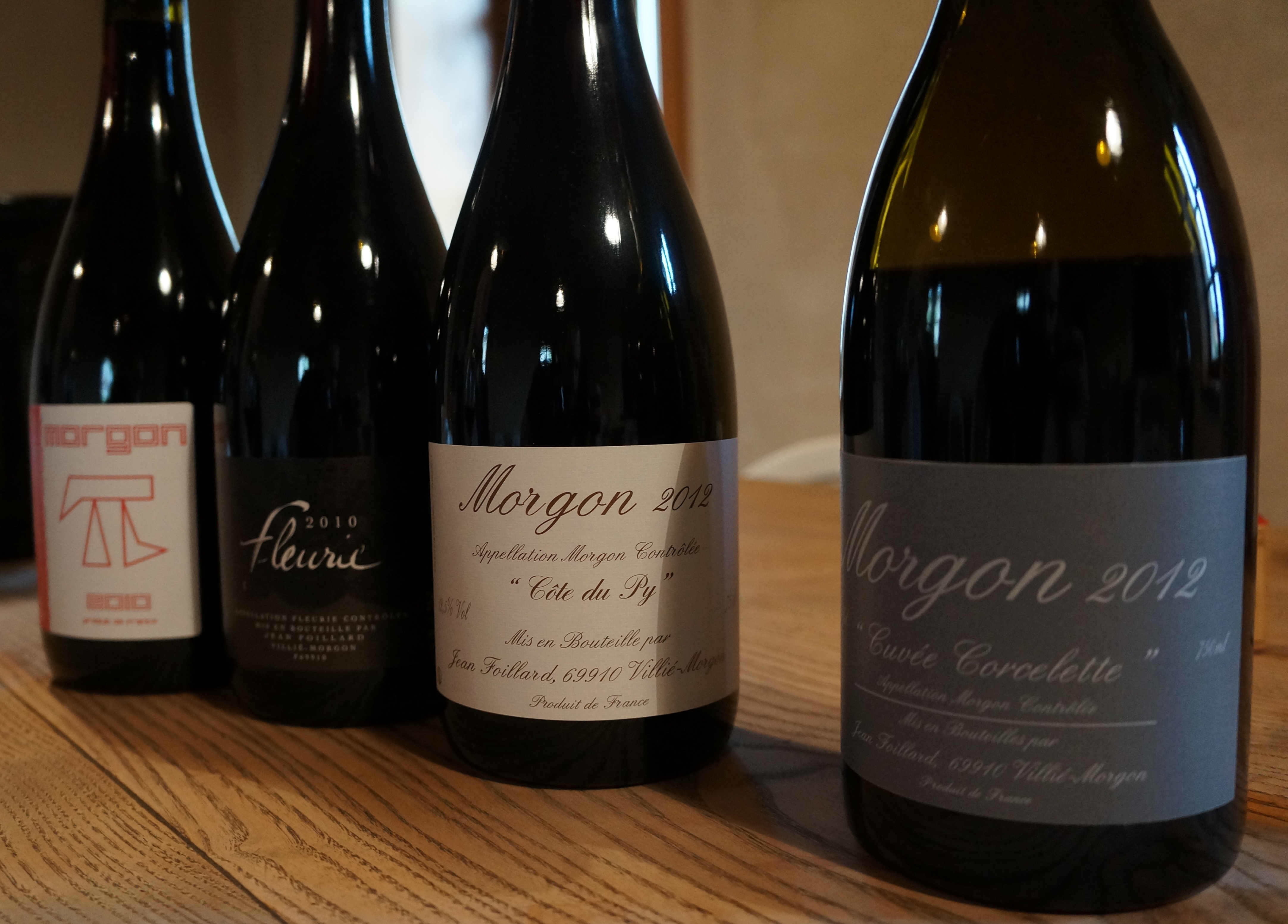August 3, 2024
The Philosophy Behind Jean Foillard's Natural Wines: A Terroir-Centric Approach

Nestled in the heart of Morgon, a small appellation in the Beaujolais region of France, Jean Foillard's vineyards produce some of the most revered natural wines in the world. The philosophy guiding Foillard’s winemaking is a profound commitment to natural methods, but more importantly, a deep respect for terroir. This concept of terroir, which encompasses the unique combination of soil, climate, and human influence, forms the bedrock of Foillard's approach to viticulture and vinification.
Terroir: The Essence of Natural Winemaking
To understand Jean Foillard's philosophy, one must first grasp the concept of terroir. Terroir refers to the intricate interplay between the geographic and climatic conditions of a vineyard, as well as the cultural practices of the winemaker. It is this delicate balance that imparts a unique character to the grapes, and subsequently, the wine. Foillard believes that the true essence of wine can only be achieved by honoring the distinct terroir of his vineyards.
The Vineyards: A Symphony of Nature
Foillard’s vineyards are located in the Côte du Py, a celebrated hill in Morgon known for its schist and granite soils. These soils are rich in minerals and provide excellent drainage, which is crucial for the health of the vines. The microclimate in this area, characterized by warm days and cool nights, allows the grapes to ripen slowly, developing complex flavors and retaining their natural acidity.
Foillard’s respect for the land is evident in his farming practices. He eschews chemical fertilizers and pesticides, opting instead for organic methods. Cover crops are used to enrich the soil with nutrients, and natural predators are encouraged to control pests. This holistic approach not only preserves the integrity of the terroir but also promotes biodiversity within the vineyard.
The Grapes: Expressing the Terroir
In Foillard’s vineyards, the Gamay grape reigns supreme. This variety, often underestimated, is capable of producing wines of remarkable depth and complexity when grown in the right conditions. Foillard’s meticulous attention to his vines ensures that the grapes express the unique terroir of Morgon.
Harvesting is done by hand, a labor-intensive process that allows for careful selection of only the ripest, healthiest grapes. This attention to detail is crucial, as it ensures that only the best fruit is used in the winemaking process. By harvesting by hand, Foillard can also minimize the impact on the vineyard, preserving the natural balance of the ecosystem.
The Cellar: Minimal Intervention, Maximum Expression
Once the grapes are harvested, they are brought to Foillard’s cellar, where the magic of natural winemaking unfolds. Foillard is a firm believer in minimal intervention. He allows the natural processes to take their course, intervening only when necessary to ensure the quality of the wine.
Fermentation is carried out using indigenous yeasts, which are naturally present on the grape skins and in the winery. These wild yeasts contribute to the complexity of the wine, as they introduce a variety of flavors and aromas that cannot be replicated with commercial yeast strains. Fermentation is conducted in open vats, allowing for the gentle extraction of tannins and color.
Foillard employs a technique known as carbonic maceration, a hallmark of Beaujolais winemaking. This method involves fermenting whole clusters of grapes in a carbon dioxide-rich environment, which helps to preserve the fresh, fruity character of the wine. However, Foillard’s approach is more nuanced, allowing for a longer maceration period to extract additional complexity and depth from the grapes.
Ageing is done in old oak barrels, which impart subtle nuances to the wine without overpowering the natural flavors. Foillard avoids the use of new oak, as he believes it can mask the true expression of the terroir. The wines are left to age for several months, allowing them to develop and mature before bottling.
The Wines: A Reflection of Terroir
The result of Foillard’s meticulous care and respect for terroir is a range of wines that are both authentic and expressive. His Morgon wines are renowned for their purity, elegance, and complexity. They capture the essence of the Côte du Py, with its mineral-rich soils and unique microclimate.
Foillard’s wines are characterized by their vibrant fruit flavours, balanced acidity, and silky tannins. Each vintage tells a story of the vineyard, reflecting the conditions of the growing season and the careful stewardship of the winemaker. These wines are a true testament to the power of terroir and the art of natural winemaking.
The Legacy: A Commitment to Terroir
Jean Foillard’s commitment to terroir extends beyond his own vineyards. He is a vocal advocate for natural winemaking and has inspired a new generation of winemakers to embrace these principles. His influence can be seen throughout the Beaujolais region and beyond, as more producers adopt organic and biodynamic practices.
Foillard’s philosophy is not just about making great wine; it is about preserving the integrity of the land and creating a sustainable future for winemaking. By respecting the terroir, he ensures that his vineyards will continue to produce exceptional wines for generations to come.
Conclusion: Terroir as the Heart of Natural Winemaking
Jean Foillard’s wines are more than just a product of natural methods; they are a reflection of a profound respect for terroir. His approach to winemaking is a celebration of the unique characteristics of his vineyards and a testament to the power of nature. By honouring the terroir, Foillard creates wines that are not only delicious but also deeply authentic, capturing the essence of Morgon in every bottle.
In a world where industrial winemaking often prioritizes consistency over character, Foillard’s commitment to terroir serves as a reminder of the true artistry of winemaking. His wines are a celebration of the land, a tribute to the natural processes that have shaped them, and a beacon of what can be achieved when a winemaker places terroir at the heart of their philosophy.
